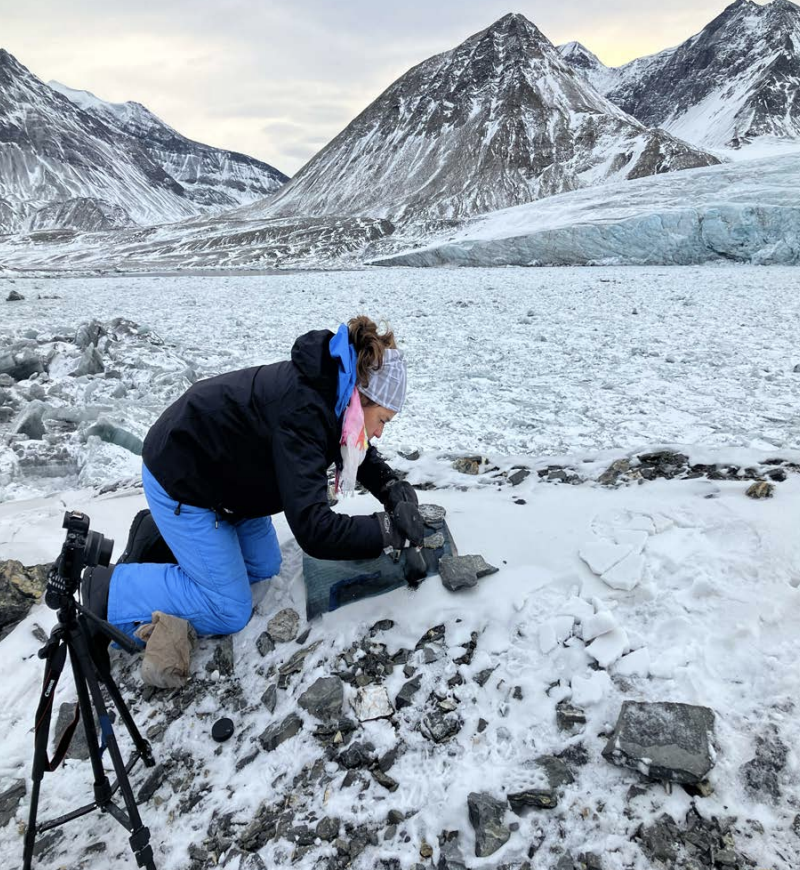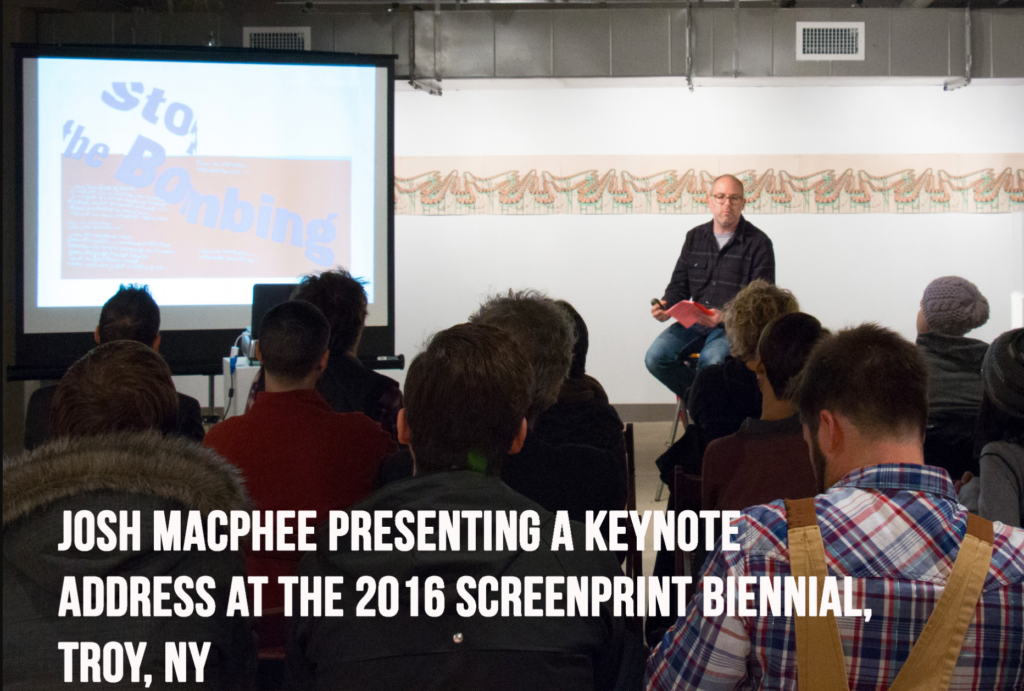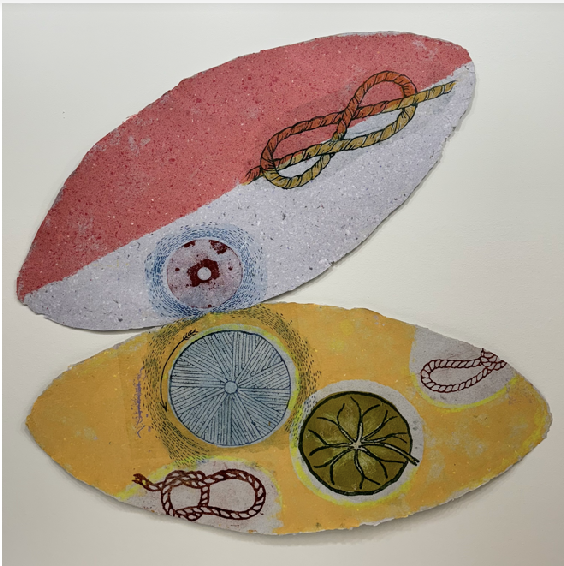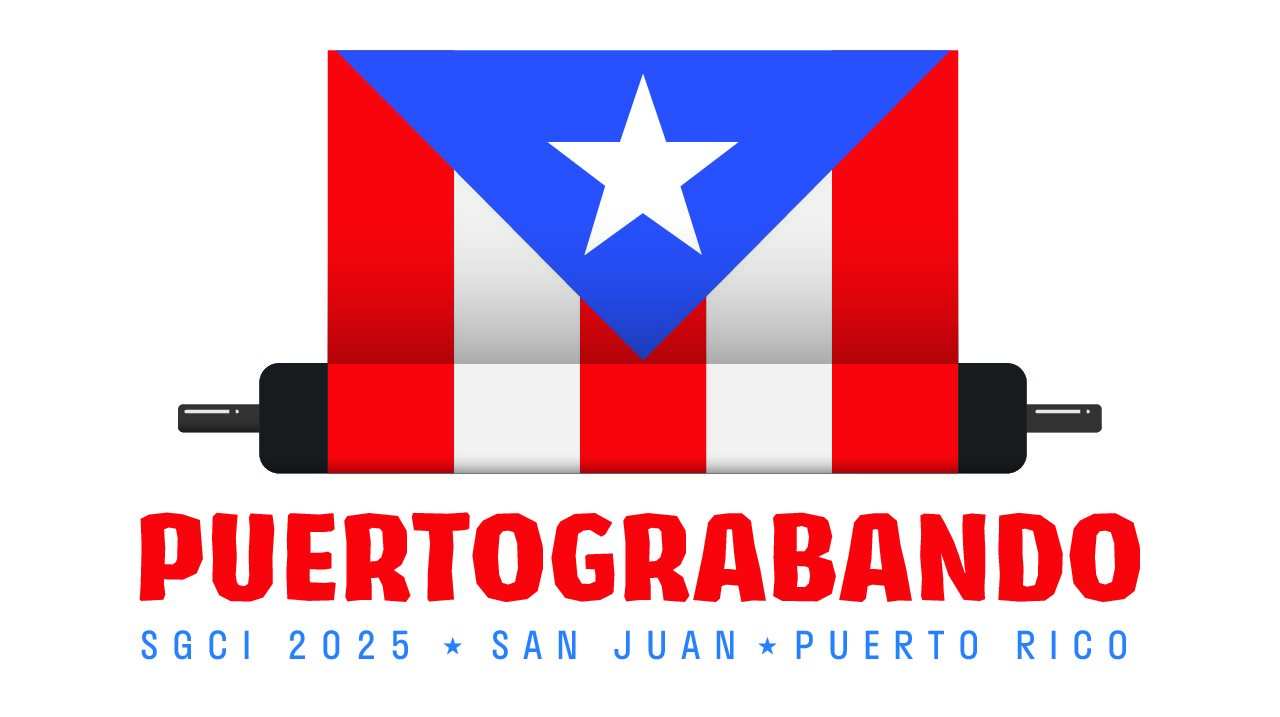
Conference Panels
Panels are discussions focused on topics relevant to printmakers and enthusiasts, chaired by individuals who apply in the Round 1 Call for Participation. Those wishing to participate as a panelist on the topic apply during the Round 2 Call.
Each panel typically includes three to four panelists and a Chair, who introduces speakers, provides context, and leads Q&A sessions. Panels are scheduled for two hours but usually last about an hour and a half. The number of panels varies by conference, depending on available space and proposals. See Panel descriptions below.
Wind Whispers
Panel Chair: Eszter Sziksz, DLa
Date, Time & Location of Panel: April 4, 11:30-1pm, Hilton Caribe
Panelists: TBA
The Wind Whispers project is an innovative and interdisciplinary initiative that aims to amplify the voices of young people in addressing climate change through art and nature. This ongoing project, led by Eszter Sziksz, DLA in collaboration with Dr. Kata Dozsa, utilizes printmaking and natural elements to create a platform for young people aged 16-18 to express their hopes and desires for our collective climate future. Messages collected from young individuals are transformed into art using organic ash and printed on snow in the High Arctic, as well as on lush tropical leaves and the soil of the rainforest in Costa Rica. The ephemeral nature of these messages, carried by the wind and interacting with local fauna, serves as a powerful metaphor for the transient impact of human actions on the environment. This interdisciplinary work has been presented at international conferences, including the International Inter-/Transdisciplinary Conference and will be further showcased at the “Child/youth-friendly Climate Justice: Progress and Opportunities” conference. The project’s expansion to Costa Rica demonstrates its global relevance and potential to engage diverse communities in climate justice and sustainability conversations. The Puffin Foundation supports the Wind Whispers project.
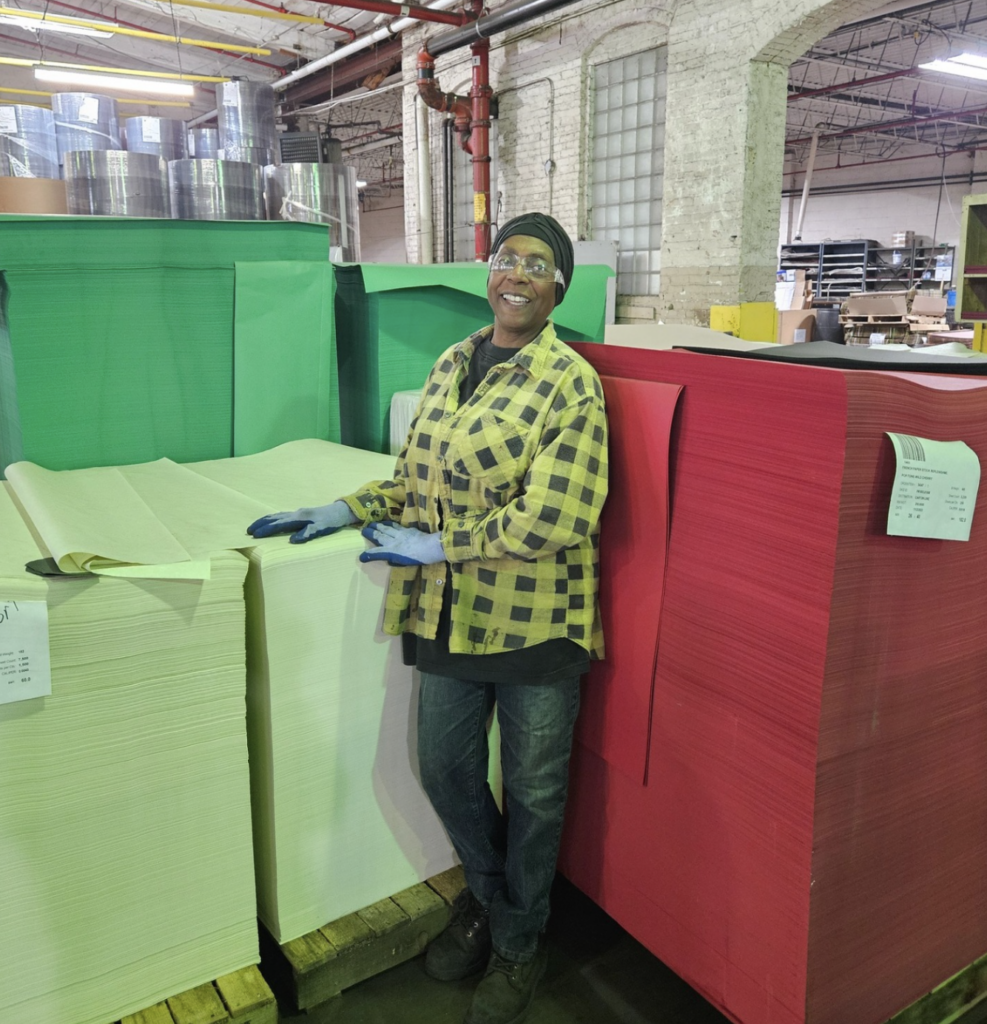
Occupying the Margins: Stories from Printmaking’s Outlying Professions
Panel Chair: Elysia Mann
Date, Time & Panel Location: April 4, 11:30-1pm, Location, Hilton Caribe
Panelists: TBA
Academic programs tend to steer students toward tenure-track positions or independent practice while the larger field of print-related careers operates in the periphery of our awareness. Yet we rely on a vast range of specialists who support the production of creative research—paper mills, ink makers, mechanists, publishers, framers, art handlers, writers and administrators all contribute to the mycelial network of print. This panel invites workers from lesser-acknowledged occupational territories to share their stories. Where do you find a sense of purpose and satisfaction in your work? How have you shaped your job to fit your unique skills and interests? In what ways are you challenged to use your creativity? How do you envision a sustainable future of diverse print professions? What advice do you have for those who are interested in carving their own path in the world of printmaking?
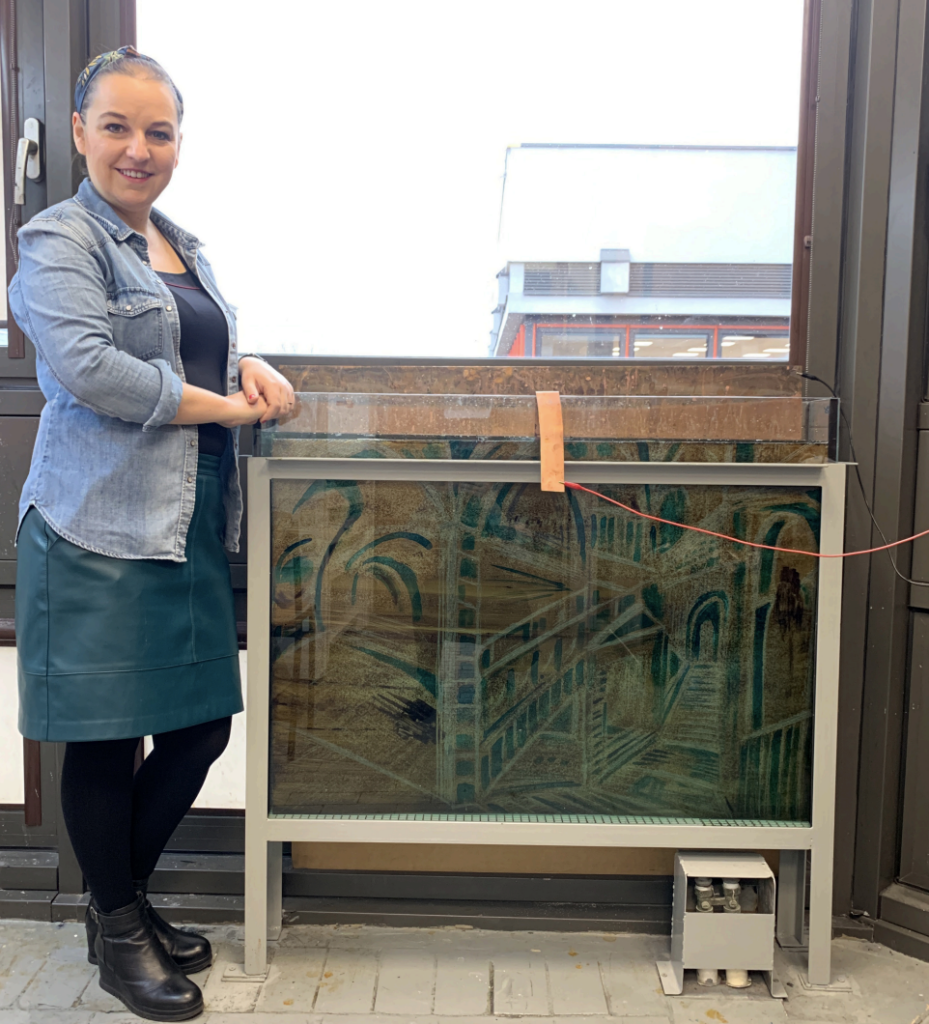
Towards Less Toxic Printmaking – Intaglio and Litho innovations from Poland
Panel Chair: Alicja Habisiak-Matczak
Date, Time & Panel Location: April 4, 1:30-3pm, Hilton Caribe
Panelists: Oskar Gorzkiewicz, Tomasz Matczak, Witold Warzywoda
This panel will introduce the public to the unique aspects of printmaking in Łódź, with a focus on scientific research in intaglio and lithographic techniques. We will highlight non-toxic experiments in eco-lithography and eco-electroetching, developed at the Lithography Techniques Studio and the Intaglio Techniques Studio at the Strzemiński Academy of Fine Arts in Łódź.
The Strzemiński Academy has been a significant center for printmaking research in Poland. The Institute of Artistic Printmaking was established in 1971 by three prominent printmakers: Stanisław Fijałkowski, Leszek Rózga, and Roman Artymowski, who created the first three studios. Today, the Institute consists of seven studios, each specializing in different areas of printmaking, led by seven professors and seven associate professors.
This panel aims to share the findings from research conducted over the past eight years at two of these studios: the Intaglio Techniques Studio, currently managed by the author and Oskar Gorzkiewicz, PhD, and the Lithography Techniques Studio, led by Prof. Witold Warzywoda and Tomasz Matczak, PhD.
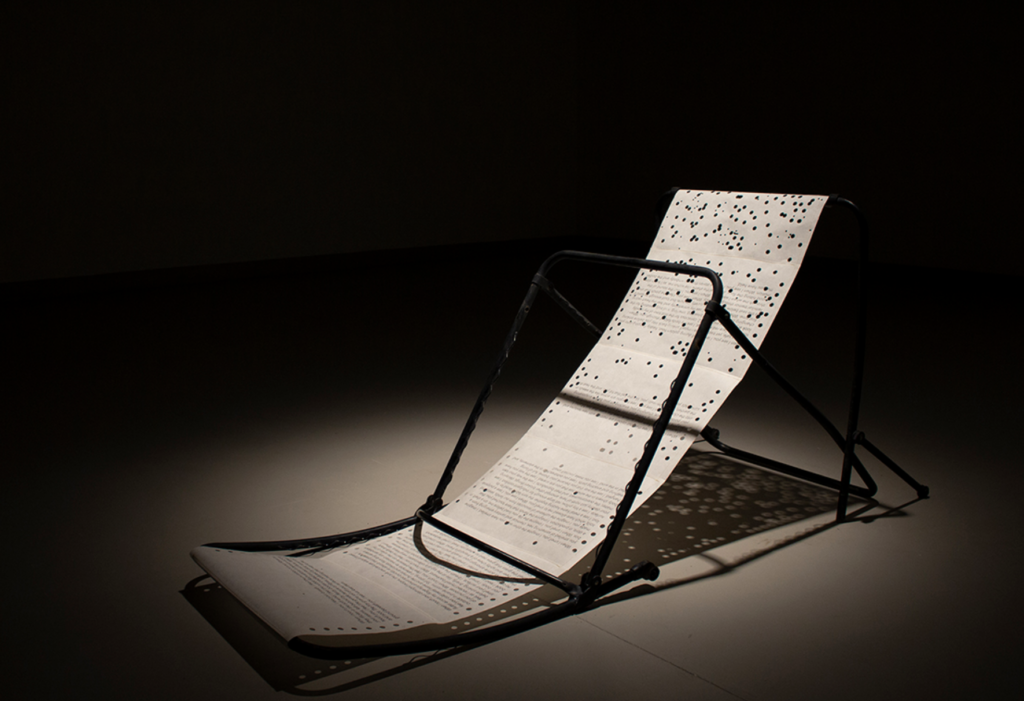
Listening with/within Contemporary Printmaking Practices
Panel Chair: Heather Leier
Date, Time & Location of Panel: April 4, 1:30-3pm, Hilton Caribe
Panelists: Emma Nishimura, Laura Grier, Aidan Dupuis
The concept of listening has gained prominence across various disciplines as a critical mode of engagement and understanding. From environmental studies to Indigenous methodologies, listening has been proposed as a transformative practice that can transcend mere auditory perception, offering insights into relationality and interconnectedness. This panel explores how listening manifests within contemporary printmaking practices, examining its potential to attune practitioners to political, social, historical, and environmental relations to unsettle colonial relations between the human and more-than-human.
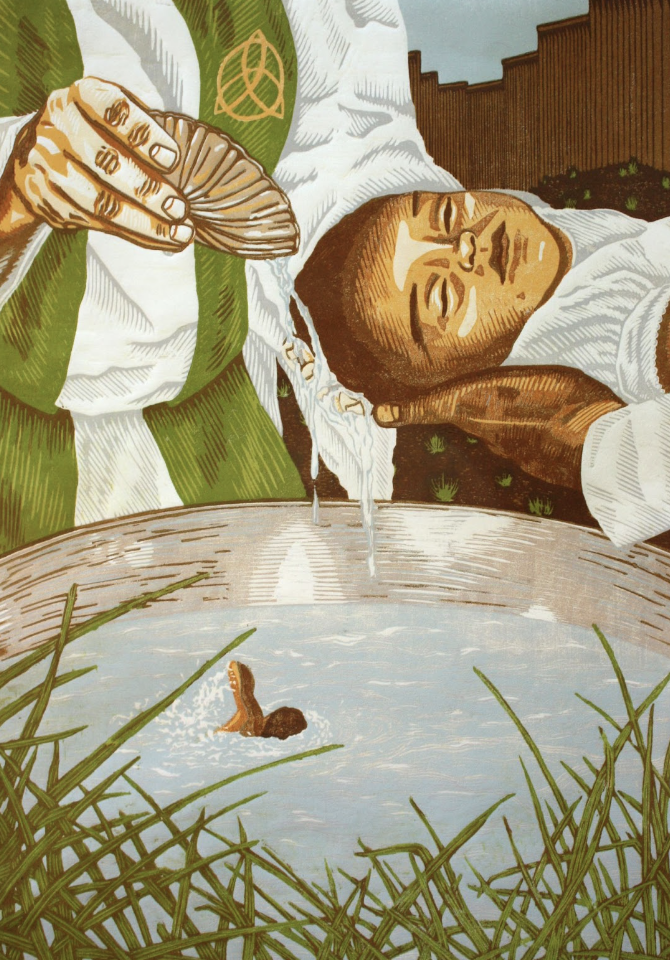
Mapping Personal Histories / Navigating Political Tides
Panel Chair: J. Leigh Garcia
Date, Time, & Location of Panel: April 4, 1:30-3pm, Hilton Caribe
Panelists: Noah Breur, Jaz Graf, Darice Polo, Ericka Walker
This panel brings together artists who use print to map current political and cultural tides through the lens of personal and familial histories. These artists uncover and examine stories, contextualizing them within broader dialogues concerning ecology, race, gender, and/or immigration status. By drawing upon familial and historical research, they connect the personal and the political. Panelists will share their research into personal, familial, and/or cultural histories, and situate projects within larger political and cultural movements. Chaired by J. Leigh Garcia, this panel will tell the stories of artists working with personal experience, familial histories, and private labor to create artworks that challenge dichotomies of personal/political, private/public, and local/global. Through their research, artists uncover and affirm the often untold stories of people of color, working-class people, immigrants, and the LGBTQ community. This panel will seek to include a diverse history of artists and a diverse selection of panelists to engage this topic and create an inclusive dialogue. The panelists will share their research and weave it into their artistic projects. Contemporary artists who draw upon autobiographical material and familial histories encompass a diverse array of processes and projects, and the panelists’ research will be contextualized within a lineage of artists whose work manifests the idea that the personal is political.
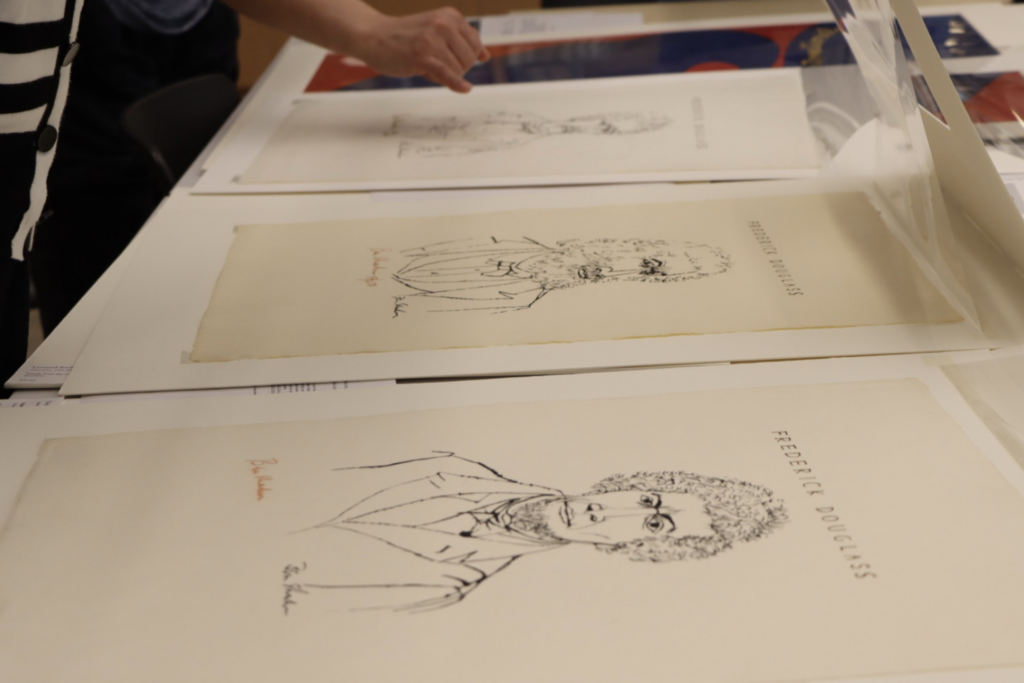
The Print Collection
Panel Chair: Beth Howe
Panel Date, Time & Location: April 4, 3:30-5pm, Hilton Caribe
Panelists: Jaquelee Chit Yu Chau, Andrew J. Saluti, Syracuse University, Patrick Vincent, Austin Peay State University
What do print collections – the formal and public to the personal and ad hoc – mean for printmakers? How do we position and value their role in our practices, histories, and discourse? How accessible are these collections and what does it mean to be accessible? What makes a print collection relevant? Are they doing what we need them to do and are we doing what they need us to do? This panel will discuss issues and projects concerning Print Collections: accessing them, building them, stewarding them, teaching with them, troubling them, studying them, contributing to them, and caring for them.
Conference Anarchy: Decentralizing Printmaking Knowledge Through Regional Symposiums
Panel Chair: Nathan Meltz
Date, Time & Location of Panel: April 4, 3:30-5pm, Hilton Caribe
Panelists: Milos Djordjevic, University of Kragujevac, Serbia, Stephanie Smith, University of West Georgia & Atlanta Printmakers Studio, Justin Diggle, Professor of Art, University of Utah
Conference Anarchy: Decentralizing Printmaking Knowledge Through Regional Symposiums will highlight the robust trend of current local symposiums, smaller scale conferences, print fairs, and home-grown print events that eschew the cost and monumentality of national and international printmaking conferences for the more individualized and niche regional meetings.
This panel will offer a diverse group of printmakers involved in organizing smaller, themed, and regional biennials, symposiums, and workshops, presenting on the strengths and challenges of this organizing. Examples may include the Screenprint Biennial symposium or the Zea Mays workshop, highlighting printmaking concepts on a focused theme, or events like Quebec’s Trois-Rivières Biennial or Chicago’s Grabadolandia that showcase a diversity of language and culture in printmaking. Organizers of print events like Print Santa Fe or Print Austin would be encouraged to share their experiences.
Presenters on the Conference Anarchy panel will argue that the smaller symposiums offer more opportunities for diversity and access, with more affordable meetings, more chances to connect with like-minded artists, and with a lessened climate impact than larger centralized conferences. Concepts like tele-presence and virtual participation could also be discussed.
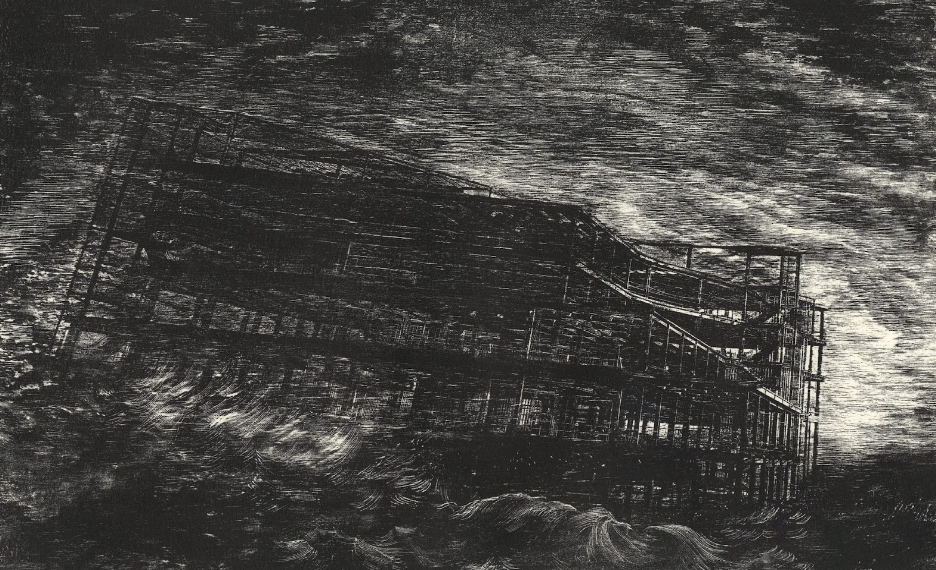
Elastic Memory
Panel Co-Chairs: Patricia Villalobos Echeverría & Eddy Lopez
Date, Time, & Location of Panel: April 4, 3:30-5pm, Hilton Caribe
Panelists: Ioannis Anastasiou, Nayda Collazo-Llorens, Kelsey Miller, Fifty-Fifty art collective (Lisa Bulawsky and Laurencia Strauss), Kasey Ramirez
Printmedia is well positioned to speak about the imprints and tracings of history, a dialogue that distends into dissemination and layering that evinces the complex relationship we all have to memory and place. It serves as a germane language to speak of a malleable state and to the suspended nature of our contemporary condition, due to political instability, ecological disasters, massive migration and economic distress.
This panel will focus on projects and works that engage the tracings of history through memory, trauma, and transformation. The works will deal with issues of class, gender, politics, violence, migration, personal history, identity and questions of belonging by artists whose modes of engagement use participatory art, socially engaged artworks, installation based or dialogic projects that in some way transform these experiences. We invite presenters who would present on the powerful tracings and “imprints” of memory and in this way reveal what might live in our imaginaries.
Presenters will also participate in a related exhibition, “Memorias Elásticas” at the El Cuadrado Gris gallery.
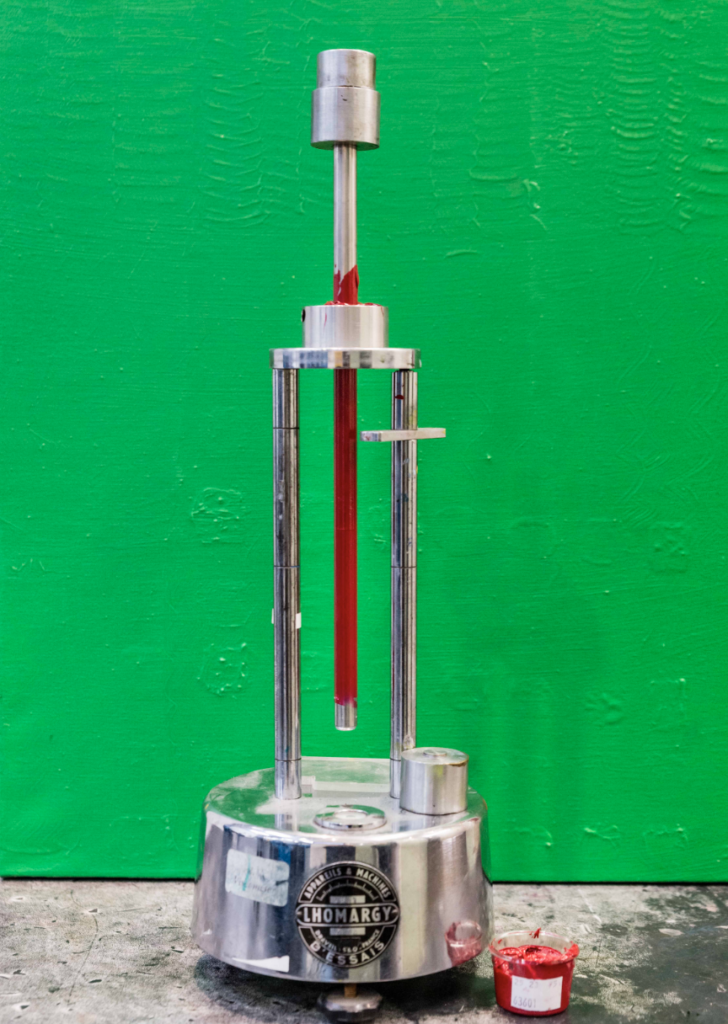
The Future Prospects of Printmaking Ink
Panel Chair: Stephen Hoskins
Date, Time, & Location of Panel: April 5, 11:30-1pm, Hilton Caribe
Panelists: Liz Chalfin, Zea Mays Printmaking Studio, Michael Craine, Cranfield Colours, Brandon Gunn, Tamarind Institute, University of New Mexico, Stephen Hoskins, Centre for Print Research (CFPR), University of the West of England
Artists use ink every day, but seldom think of who made it and what it actually contains. In this era of environmental concerns, artists are now questioning what is in their ink and what is the impact of the ink on the environment. Printmakers need an ink that will stand the test of time and not fade or discolour. They also need to know that if they buy an ink this year, that they can buy the same ink in five years. Twenty years ago the trend was to consider whether artists ink was healthy for the user. Recently concerns for the wider environment have come to the fore. Society is now questioning the future of plastic, petrochemical products and monoculture, each of these occur in the manufacture of commercial printing ink and can occur in some printmaking inks. What this means for the printmaker is a rethink of what type of ink you use and how you might use it? Presentations will include ink manufacture, history of printmaking ink, and two case studies from contemporary printmaking studios.
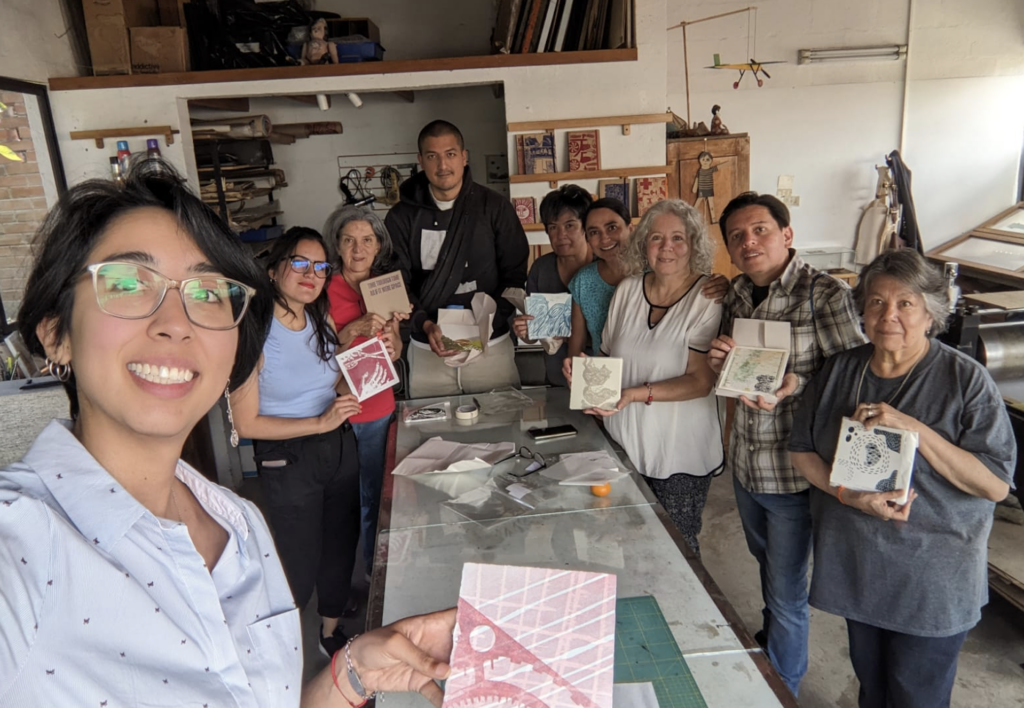
Experiences of Cultural Exchange through Printmaking
Panel Co-Chairs: Sol Gómez, Gina Reynoso, and Valeria Carrera
Date, Time & Location of Panel: April 5, 11:30-1pm, Hilton Caribe
Panelists: Maritza Davila-Irizarry, Director, Atabeira Press, University of Memphis & Memphis College of Art, Irena Keckes, University of Guam, Elizabeth Rose, Hope College
Printmaking’s inherent reproducibility and portability makes it the perfect vehicle for cultural exchange. The visual language of the print can enable meaningful conversations that transcend language barriers, geographical boundaries, and ideological constructs.
This panel would examine the ways in which artists and Collectives have used printmaking as a point of entry to engage with other cultures and communities. In the contemporary age, how can printmaking be used to connect people? To build artistic communities across the globe? In what ways does it enrich cultural understanding? What does it teach us about ourselves and how might we learn from each other?
La reproductibilidad y portabilidad inherentes del grabado lo convierten en el vehículo perfecto para el intercambio cultural. El lenguaje visual del grabado puede permitir conversaciones significativas que trascienden las barreras lingüísticas, los límites geográficos y las construcciones ideológicas.
Este panel permitirá compartir las formas en que los artistas y colectivos han utilizado el grabado como punto de entrada-partida para interactuar con otras culturas y comunidades. En la era contemporánea, nos preguntamos: ¿cómo se puede utilizar el grabado para conectar entre personas? ¿Para construir comunidades artísticas alrededor del mundo? ¿De qué manera puede enriquecer el entendimiento cultural? ¿Qué nos enseña sobre nosotros mismos y cómo podemos aprender unos de otros?
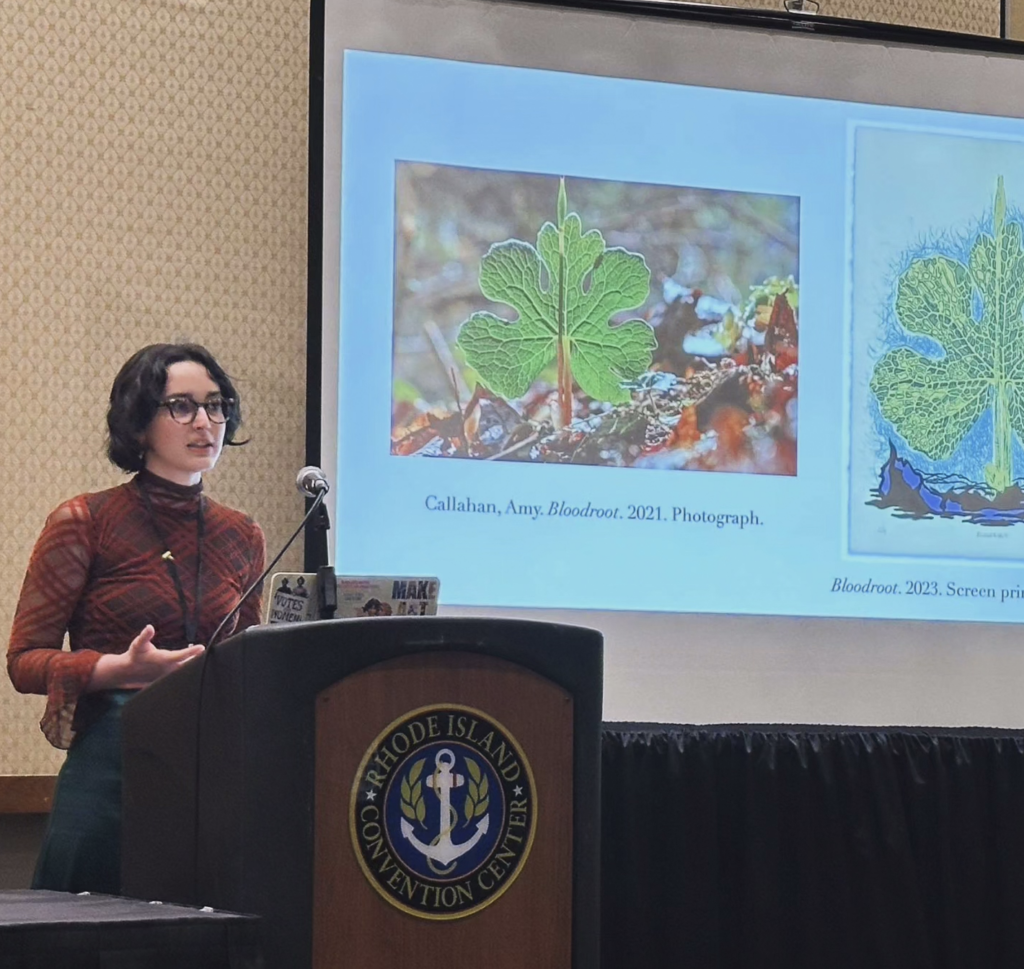
Student Lightning Talks
Organizer: Gaby Hurtado-Ramos
Date, Time & Location of Panel: April 5, 1:30-3pm, Hilton Caribe
Panelists: Jude Bigboy, Rhode Island School of Design, Savannah Bustillo, University of Iowa, Mandy Darrington, Ohio State University, Jackelin Espinosa Moyotl, University of Wisconsin, William Henry, University of Alabama, Ivy Manska, University of Tennessee, Zoe Nielsen, Purdue University, Grace Russell, University of Tennessee, Lo Smith, Pratt Institute, Francille Zhuang, Purdue University
The Student Lightning Talks is a panel where undergraduate and graduate SGCI student members will share small but mighty 5-minute presentations about their work, followed by a Q&A. The panel is designed to highlight students that have strong bodies of work or specific projects to share in a concise presentation. This series of presentations will allow attendees to learn about a variety of artists’ works in a short period of time and provide the opportunity for students and conference attendees to connect over shared interests that come up in the presentations and Q&A. Highlighting student work provides an important platform for emerging and early-career artists to share their work and connect with others.
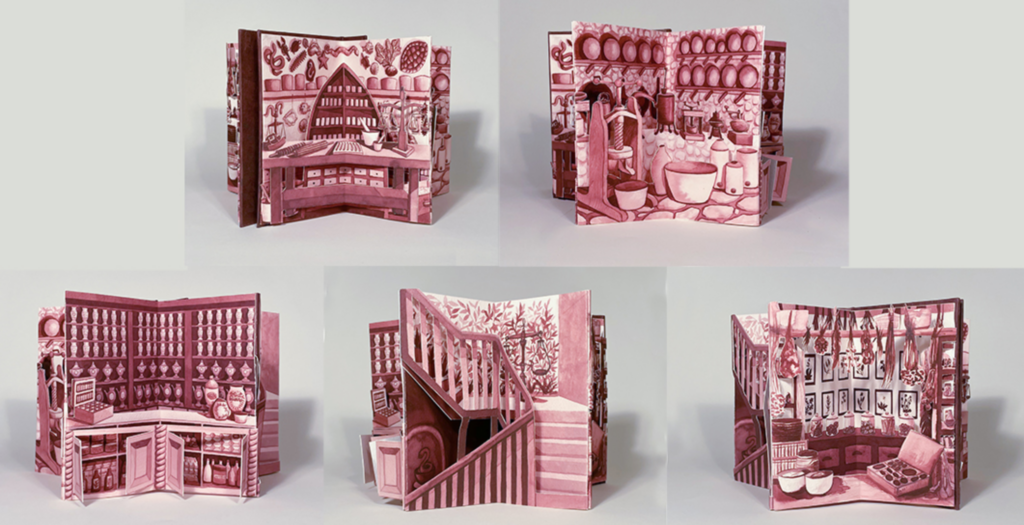
Artist Books: Place and Space
Panel Chair: Jennifer Scheuer
Date, Time & Location of Panel: April 5, 1:30-3pm, Hilton Caribe
Panelists: Irene Chan, Maritza Davila-Irizarry, ETC Press, Daniela Deeg and Cynthia Lollis, Arron Foster, Tatiana Potts, Erin Zona
The artist book as a form utilizes surface, space and time, and is well suited to describe place. In describing place, artists might create work about a research site, home, travel, or use the form to create inventive and imagined space- to retell histories, what might be, and forgotten narratives. What layers of content and messages can be described uniquely through this artform and flexibility of structure? In this panel artists will present recent projects that influence the creation of their artist books. The panel will be an open call inviting artists to participate, and can include 4-6 presenters.
POSSIBILITIES / POSIBILIDADES: Bridging Print and Paper
Panel Chair: Georgia Deal
Date, Time & Location of Panel: April 5, 1:30-3pm, Hilton Caribe
Panelists: Danqi Cai, University of Arkansas, IBe Crawley, IBeArts Institute, Susan Gosin, Dieu Donne Paper, Holly Hill, Western Carolina University, Sarah Matthews, MICA, Yangbin Park, Univ. of Memphis, Rachel Singel, University of Louisville, Cynthia Nourse Thompson, Kennesaw State University, Jocmarys Virtuet, University of Iowa
The long history and interconnection of printmaking media and hand papermaking has led to a multitude of projects and collaborations. This panel will focus on such collaborations between printmakers and papermakers in both locales, highlighting both two-dimensional and three-dimensional works as well as installations.
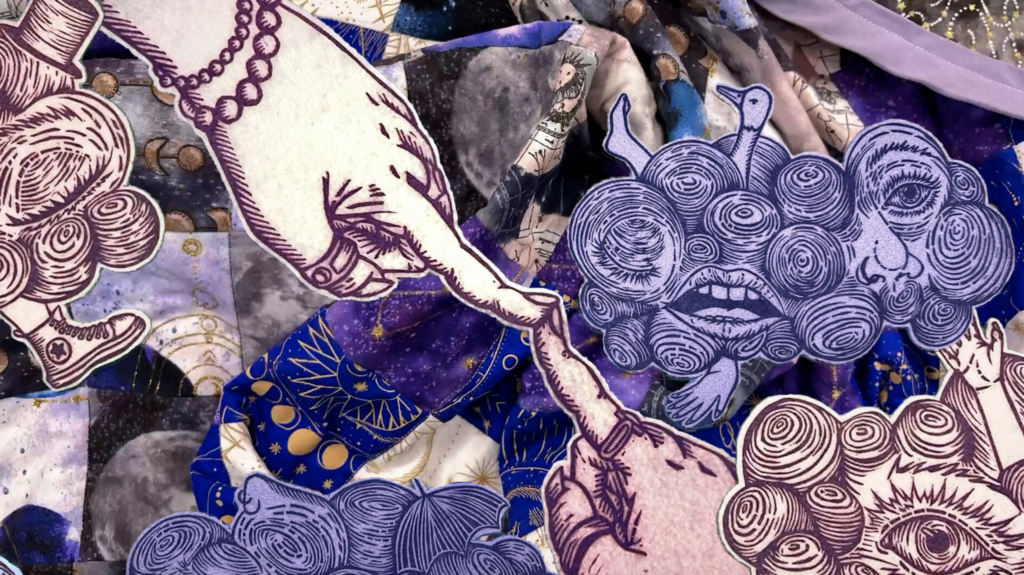
Prints in Motion: The Animated Print
Panel Chair: Shannon Ferguson
Date, Time & Location of Panel: April 5, 3:30-5pm, Hilton Caribe
Panelists: David Wischer, University of Kentucky, Raluca Iancu, Iowa State University, Yan Wang, School of the Art Institute of Chicago, Kit MacNeil, University of Toronto, Kakyoung Lee
This panel will discuss how contemporary printmakers are using the mode of animation in collaboration with traditional printmaking practices to create time based artworks. Animation commonly is used in pop culture to establish narratives, but how can the repetition of the print communicate with the medium beyond its traditional expectations? Stop Motion animation and Risograph animation are only some of the ways that printmakers are using the matrix to create moving images. Panelists will discuss the role of animation in their own print practices as well as its role as a teaching tool in the contemporary print classroom.

